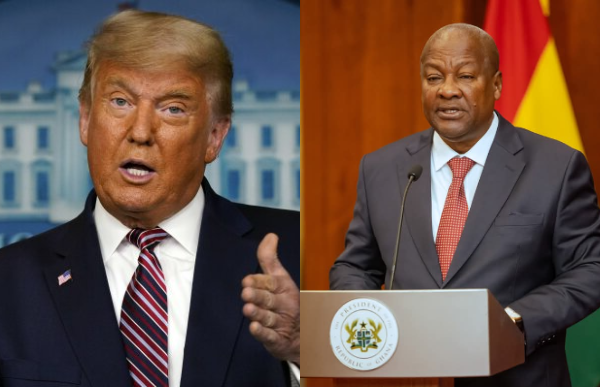adverts
The United States government has formally blacklisted Ghana from receiving foreign assistance, including development loans and flagship initiatives such as the Millennium Challenge Corporation (MCC), after the country failed to honour debt obligations owed to Washington.
The MCC Candidate Country Report for Fiscal Year 2026 confirmed Ghana’s exclusion, citing default on principal and interest payments due to the U.S. in 2025. The decision is a direct consequence of the sweeping debt suspension and restructuring programme Ghana launched in December 2022 at the height of its economic crisis.
The restriction is backed by Section 7012 of the U.S. State, Foreign Operations, and Related Programmes Appropriations Act for FY2025. The law bars assistance to governments in default for more than one year on U.S.-issued loans unless the President issues a waiver in America’s national interest.
adverts
“No part of any appropriation provided under titles III through VI in this Act shall be used to furnish assistance to the government of any country which is in default during a period in excess of one calendar year in payment to the United States of principal or interest… unless the President determines… that assistance for such country is in the national interest of the United States,” the provision states.
Ghana’s debt crisis peaked in December 2022, when the Ministry of Finance suspended payments on external obligations, covering Eurobonds, commercial loans, and most bilateral debts. Officials described the freeze as an emergency measure to conserve dwindling reserves and prioritise imports such as fuel and medicine.
Though multilateral loans (IMF, World Bank), post-December 2022 borrowing, and short-term trade finance were exempted, the move marked Ghana’s first sovereign default in decades. It paved the way for a $3 billion IMF Extended Credit Facility and a broad restructuring programme.
Domestically, the government restructured about GH¢137 billion in local bonds, securing around 85% participation after slashing coupons and extending maturities. Internationally, it pursued talks on $13 billion in Eurobonds and $5.4 billion in bilateral loans.
By January 2024, Ghana reached a deal in principle with bilateral creditors led by China and France under the G20 Common Framework. This milestone unlocked further IMF disbursements. Mid-2024 saw the near-finalisation of a Memorandum of Understanding to cement the deal.
In parallel, Ghana struck an agreement with bondholders that included a 37% cut in face value, reduced interest rates—some as low as 1.5%—and protections against preferential treatment of other creditors.
Despite these advances, Ghana is not expected to resume payments on bilateral debts until 2026. This prolonged suspension triggered the U.S. decision to enforce Section 7012, effectively cutting Ghana off from concessional finance and specialised technical support.
The exclusion from MCC programmes is particularly painful. Ghana has previously received hundreds of millions of dollars in MCC compacts, funding critical projects in energy, transport, and infrastructure. Without a presidential waiver, these opportunities are now closed.
Analysts warn that the blacklisting could complicate Ghana’s recovery. While the IMF-led restructuring has restored some confidence, losing access to U.S. development finance highlights the continuing risks of prolonged default and the importance of timely re-engagement with creditors.
For now, Ghana’s economic path remains tied to IMF programme milestones, successful reform implementation, and rebuilding sufficient buffers to exit default by 2026. The U.S. decision underscores the tangible consequences of delay.
Click the link Puretvonline.com | WhatsApp Channel to join the WhatsApp channel
GOT A STORY?
Contact/WhatsApp: +233243201960 or email: manuelnkansah33@gmail.com


